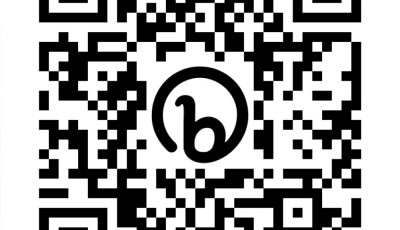In what do we trust?
In God We Trust is a phrase adopted as the official motto of the United States in 1956 to replace the unofficial E pluribus unum (“Out of many, one”), which has been in the United States seal since 1782. “In God do we trust” is a phrase in the fourth stanza of the poem from where the lyrics of the national anthem Star-Spangled Banner came from. It appeared in coins in 1864 and in paper currency since 1957. It is the motto of Florida. It’s Spanish equivalent, En Dios Confiamos, is the motto of Nicaragua.
Its appearance in U.S. coins was a political move, to indicate that God was on the side of the Union in its minted coins vs the Confederacy. It’s ascendancy into common usage since 1956 stemmed from the Cold War when President Eisenhower signed a law to incorporate “nation under God” to the Pledge of Allegiance to distinguish the United States from the atheist Union of Soviet Socialist Republics. Historically, the phrase was incorporated into the nation’s set of metaphors, not out of theological acumen but for political reasons.
The word G-O-D is the English translation of the German “Gott,” which means good. The word made it to the Judeo-Christian sense of the supreme, of “what is” rather than “what had been, what we presently feel and think, or what we hope for.” YHWH, the “I am who I am,” or “that of which there is no other” of the Levant, focused on reality rather than the illusion of a mirage in the desert, makes for effective authentic living.
“That which is totally other, a no-thing” came as Islam’s anti-idolatry against the icons of Judaism and Christianity. The no-thing in Arabic is Allah. So, in Jewish-Christian tradition, God is the all powerful and almighty that is a mystery. In Islam, where icons of anything are reduced to nothing, Allah is what we know only too well, the nothing that reduces everything into an illusion. Allah is the No-Thing.
Secularist are saying that the word “God” is too closely associated with specific religious traditions that to have it officially in the documents of political union that wrote into its constitution the separation of church and state, would be well to excise the word lest its presence indicates official favor of one tradition over and against another. Having it in public documents, tablets, monuments, et al, is clearly unconstitutional. In Malaysia, the Muslims are insisting that only Islam is entitled to the word “Allah” and Christians must not use it as a translation for the word “God.” They have a point, if they would only just divorce it from partisan politics. The Tao that cannot be named, and the enigmatic but breath-captivating OM best experienced when simultaneously inhaled and exhaled, do not have limit problems. But the word “God” is inappropriate to translate either for Tao or Om.
The presence of the word in the phrase “In God we trust” is currently a hot issue. A dear friend was up in arms when it was suggested that “God” should be removed from official usage and its use be at the discretion of individual citizens. She believes fervently that her biblical God called America to be the New Israel.
Tom DeLay (R-Texas), former majority floor leader of the U.S. Congress House of Representatives, and erstwhile friend to Saipan’s once flourishing garment industry, plays in the same ballpark. Recently, our fleet-footed (he danced on TV after he resigned from Congress) rep stated that God wrote the U.S. Constitution. This was not an unusual claim in Texas where I went to school, since God as deus ex machina is the prevailing image of efficient and effective deity, but hardly is it a metaphor we expect to hear as a responsible claim.
Recently, George Zimmerman of the Martin Trayvon homicide fame claimed that he answered only to God. He claims further that his shooting of Martin was the will of God! Damn.
God has not been put in a good light of late. But it is the element of trust that is of interest to us because not too many outside of American theocracy (well, that may not be accurate since in my lifetime, there has not been any naïve God-worshiping President of the Union) would glibly repeat the “In God we trust” motto. However, “in what shall we trust?” remains a valid question as the nations of the world tighten their sovereign boundaries and straighten their economic houses in order.
Japanese PM Shinzo Abe interviewed in Davos, Switzerland, at a G-20 meeting said that China’s economic ascendancy is built on trust, not tension. We could not agree more. So why does he keep rattling Nippon’s saber? It is not as if we do not have a record of who has been belligerent outside its borders in the last 100 years. Or why does the U.S. keep insisting on parading its military muscle vis-à-vis the shivered up economy of NoKor? SoKor’s military might is 10 times stronger than that of its northern kin, and we insist on calling the joint exercises a defensive move? No wonder NoKor insists on having nuclear capabilities!
Right on, Shinzo Abe. But please start heeding your own advice.



























